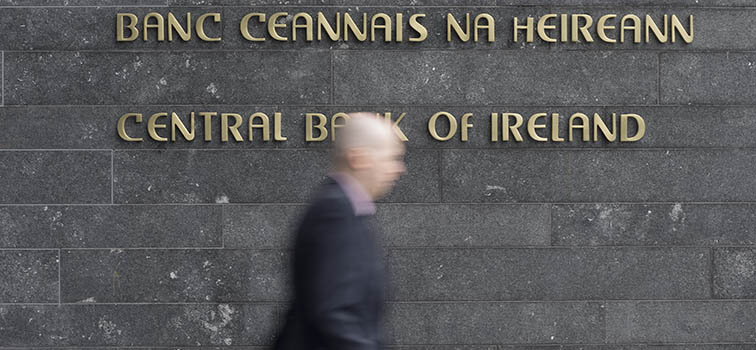Poor business practices, ineffective disclosure and changes in financial services present risks for consumers of financial services – Consumer Protection Outlook Report
14 March 2022
Press Release

- Consumer Protection Outlook Report details five risk areas financial firms should take action on to avoid consumer harm
- Risks framed against the backdrop of a rapidly changing financial services landscape
- Engagement programme will listen to stakeholders views on the risks and what they see as the challenges for consumers
The Central Bank has published its Consumer Protection Outlook Report calling out five key cross sectoral risks facing consumers of financial services, as well
as what the Central Bank expects regulated financial firms to do about those risks. The risks are:
Poor business practices and weak business processes
The fundamental responsibility of a financial service provider is to provide a good quality service, placing the best interests of the consumer at the centre of how that service is designed and delivered. Poor business practices and weak business processes
disrupt this, and can lead to consumer harm.
Ineffective disclosures to consumers
Where firms fail to give clear information to consumers at any point in the life of a product or service, this will affect the consumer’s ability to make informed decisions and could result in harm.
The changing operational landscape
The financial landscape is undergoing a number of significant changes. Firms must navigate this rapid change in a manner that places the best interests of consumers at the heart of their commercial decision-making and avoid creating risks to consumers.
Technology-driven risks to consumer protection
Technology provides great opportunities to improve access to and choice of financial services and it is increasingly central to all aspects of our lives. As firms develop and deploy new technologies, they must ensure that they take sufficient care to
also mitigate the risks of harm to consumers that can arise from the use of those technologies.
The impact of shifting business models
The developments outlined in this report are leading many firms to re-evaluate their services and how they provide them. Firms are also looking to innovate and re-design their business models. As they do so, it is imperative that any changes made lead
to a better service to consumers and that firms manage the transition for consumers in a responsible, transparent and fair way.
The report also describes work the Central Bank will do to deliver on our Strategy with respect to these risks. This includes following through on existing programmes of work to secure outcomes that serve the best interests of consumers as well as enhancing
our effectiveness as supervisors. It also involves our work, in collaboration with others, to enhance the wider framework for protecting consumers and informing public debate on the issues affecting our lives and the economy of our country.
We are seeking views on these risks and a dedicated contact point has been set up for people to contact us.
Director of Consumer Protection, Colm Kincaid, said, “Financial services play a critical role in our daily lives and how we provide for our future. Regulated firms have a duty to provide those services in a manner that protects the best interests
of consumers. In this report, we identify the primary drivers of risk for consumers that we see from our supervisory work, as well as what we expect firms to do about those risks.
“We want to hear people’s views on these risks. Do people agree with these risks, do they see other risks? People and organisations can contact us directly to provide these views. We are also planning a series of engagements with stakeholders
over the coming months. The information people provide us will shape our work and the expectations we set for the firms we regulate in the years ahead.”